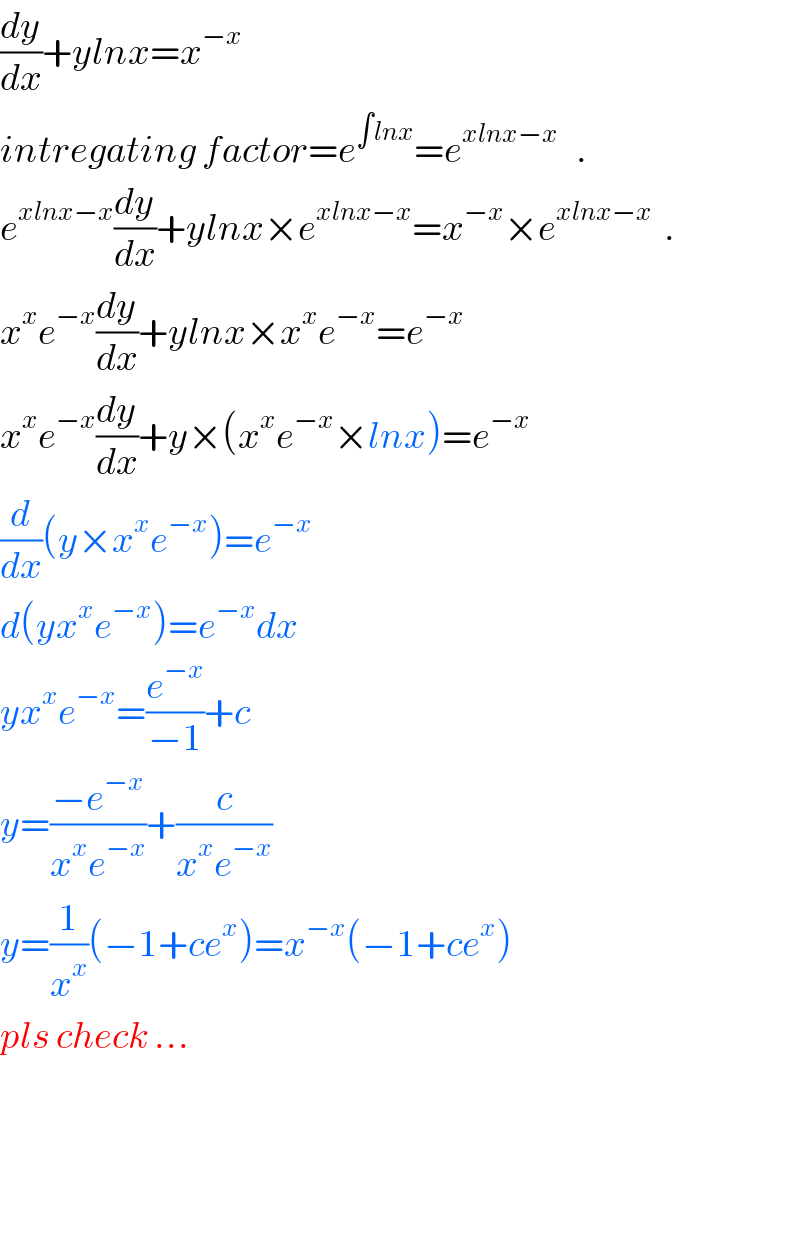
Question and Answers Forum
Question Number 53426 by Necxx last updated on 21/Jan/19

Commented by maxmathsup by imad last updated on 26/May/19

Answered by tanmay.chaudhury50@gmail.com last updated on 21/Jan/19

Commented by Necxx last updated on 22/Jan/19

